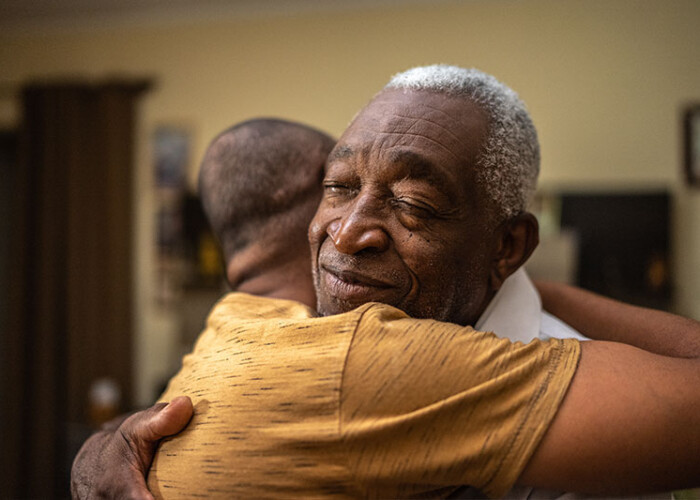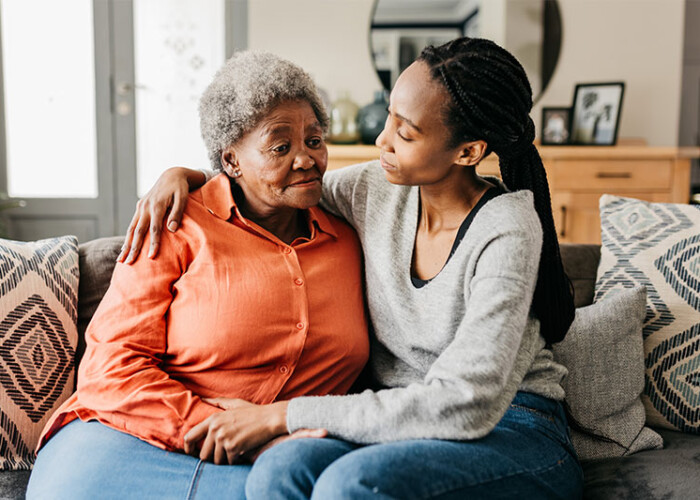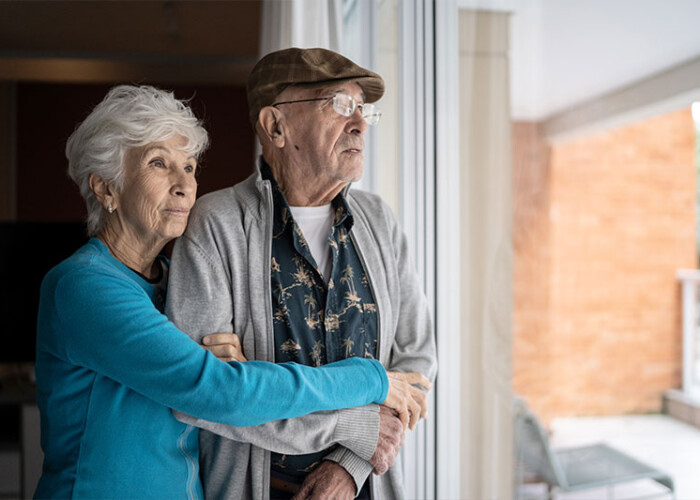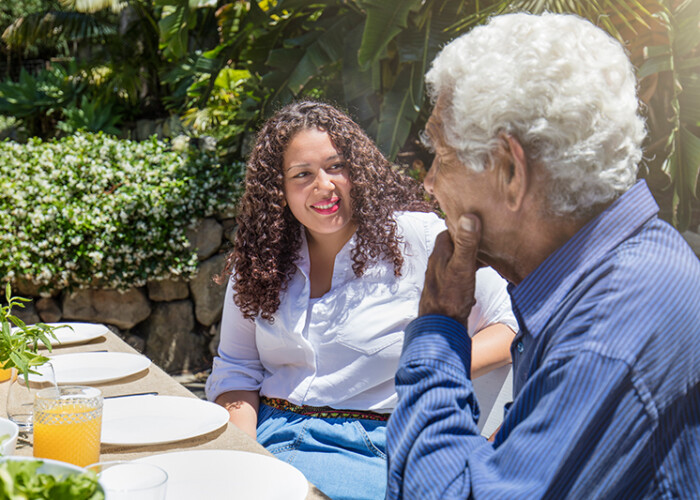Respite Care
Are Your Parents Refusing Help? Try These Tips.
If you’re struggling with parents refusing help when you know it’s needed, try these tips.
It’s a challenging scenario many family caregivers face: your aging parents, who once cared for you, now resist the help they so desperately need. It’s a delicate balance between respecting their freedom and ensuring their safety and well-being. If you find yourself with parents refusing help at home, you’re not alone! We understand the range of emotions that go along with accepting the need for care, and have some tips to help you and your parents get on the same page.
Breaking Free From Caregiver Guilt Starts With One Small Step
Letting go of caregiver guilt opens the door to peace, balance, and renewed strength.
If you’ve ever said, “I’ll handle that once Mom’s settled,” or “There’s just no time for me right now,” you’re not alone. Nearly every family caregiver has been there — caught in the trap of self-sacrifice and caregiver guilt. It feels noble to put your needs last. After all, someone you love depends on you.
We Hear You! Here’s the Family Caregiver Support You’re Telling Us You Need.
When caregivers were asked what they really needed, here’s what they had to say about family caregiver support.
It might be hard to imagine feeling invisible when you spend so much time with someone you love, but for many family caregivers, it’s a common theme. They describe their daily role as both rewarding and exhausting—a balancing act where their loved one’s needs come first and their own often fall last. Over time, that imbalance can take a toll.
What Are Catastrophic Reactions in Alzheimer’s, and How Should You Handle Them?
Learn about catastrophic reactions in Alzheimer’s, including what to watch for, how to prevent them, and how to manage them if they occur.
Caring for someone with Alzheimer’s is a little like walking through shifting sands. Just when you think you’ve found steady ground, the landscape changes. One of the most startling effects you may encounter is what’s known as catastrophic reactions in Alzheimer’s disease—a sudden, overwhelming emotional outburst that can erupt from something as simple as a routine question or a minor change in environment.
When Is 24-Hour Care for Dementia the Right Choice?
Knowing when to seek 24-hour care for dementia can make a world of difference in safety, health, and peace of mind.
Dementia doesn’t follow a neat timeline. Some days feel manageable. Others feel overwhelming. As the condition progresses, changes in behavior, cognition, and physical health can leave you wondering if the current level of support is enough. Understanding when 24-hour care for dementia becomes necessary can help you make informed decisions that protect not only the safety and health of the person you love, but your own well-being as a caregiver.
Time Management Tips for Caregivers Who Feel Stretched Too Thin
Time management for caregivers is possible with the right support, structure, and a little help from Hired Hands Homecare.
How much extra time do you have on your hands? If you’re like most family caregivers, the answer is probably… not much. Between appointments, meal prep, medication reminders, housework, and all the unexpected challenges that pop up in a day, carving out time just for yourself can feel impossible.
When Love Feels Heavy: How to Cope With Spousal Caregiver Resentment
Spousal caregiver resentment can leave you riddled with guilt, but you can overcome it with the right support.
You meant every word of those vows: through sickness and health, for better or worse. But no one warned you how exhausting it might feel to live those promises day in and day out as a caregiver. If you’re feeling overwhelmed, frustrated, or even resentful while caring for your spouse, take a deep breath: you’re not failing, you’re just human.
How to Handle Repetitive Questions in Dementia Without Losing Your Cool
Repetitive questions in dementia aren’t always easy to manage, but these tips will help.
If you’ve ever heard the same question five times in five minutes from someone you love, you know just how draining it can be. Repetitive questions in dementia are one of the most common and challenging behaviors families encounter. But these loops aren’t something the person can control. They’re a window into how dementia changes the brain.
How Dementia Affects the Senses and What You Can Do About It
Find out how dementia affects the senses, how it impacts quality of life, and how you can help someone you love.
When dementia is part of your family’s life, there’s a good chance that memory loss is top of mind. But there’s another reality that often goes unrecognized: how dementia affects the senses. These unexpected changes can have a huge impact on daily safety, independence, and comfort. If you’re helping care for someone with dementia, understanding how sensory changes show up, and how to respond, is vitally important.
How Can You Prioritize Privacy as a Caregiver?
Make sure to prioritize privacy as a caregiver to protect your health and well-being.
Think back to your teenage years. Remember how important it was to find a safe place to be by yourself, to shut out the world, turn up the music, and write your most secret thoughts in your diary?
The need for privacy that began then may become overshadowed when providing care for someone else. Yet it’s still vitally important to be able to separate yourself both physically and mentally from your caregiving role to take time for yourself and prioritize privacy as a caregiver.
How Can a Caregiver Make Privacy a Priority?
Frankly, it isn’t always easy. You may feel as though you need to always have at least one ear and eye open to the needs of the person in your care. There … Read More »

















